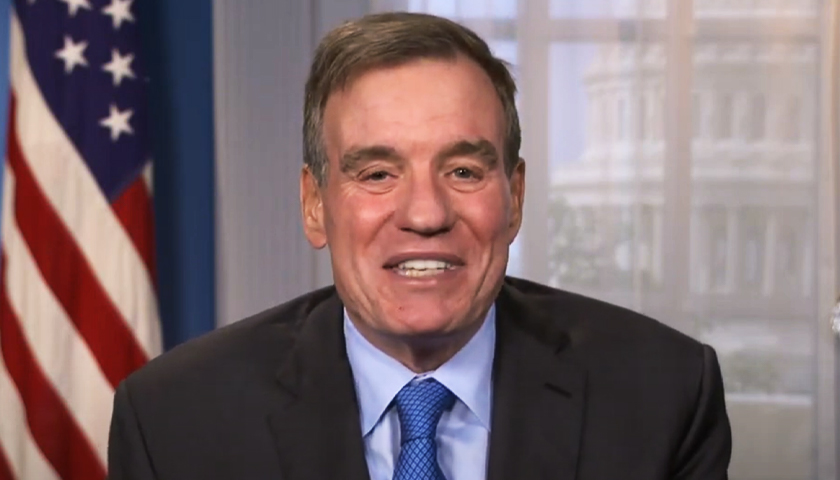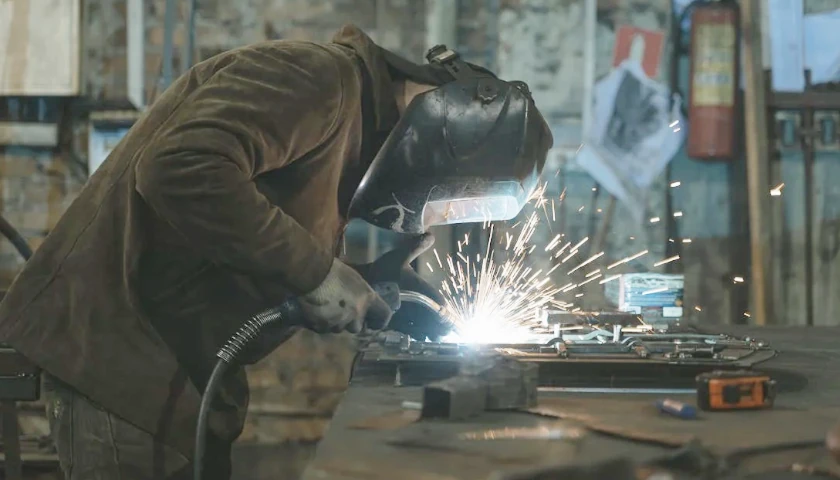Senator Mark Warner (D-Virginia) expects the $1.2 trillion “hard” infrastructure bill to pass the Senate with bipartisan support, according to a press call Warner had after 17 Senate Republicans joined Democrats in a procedural vote moving the bill towards a final Senate vote.
“I think it will get passed, and again, these dollars will get spent over the next five years plus,” Warner said. “I think it’s been a long time coming, 30 years plus since we’ve had this kind of investment, and I was very proud to be part of the group that put it together.”
Warner highlighted benefits in the $1.2 trillion package for Virginia.
He said spending on climate resilience, railroads, and ports would benefit the Hampton Roads region. Richmond would benefit from money for bridges, buses, and airports. Northern Virginia would benefit from money for Metro expansion, commuter rail expansion, and highway infrastructure.
Western Virginia could benefit from money to improve I-81 through Roanoke, expanded rail service possibly as far as Bristol, and universal broadband. Spending on clean water benefits Southside and other parts of Virginia that rely on well water or older lead pipes.
According to a White House fact sheet, the bill includes $550 billion in new spending. Some of the largest items include $110 billion for roads, bridges, and other major projects; $39 billion to modernize transit; $66 billion for rail; $65 billion for high-speed internet; and $73 billion for power transmission.
Warner said funding the bill was one of the hardest parts of the negotiations.
“Infrastructure is obviously a popular item. The challenge was not figuring out where do we need to make investments, the challenge was how do we pay for it, since both sides took the traditional pay-fors off,” Warner said.
“Republicans wouldn’t deal with taxes, Democrats wouldn’t deal with user fees,” he said.
The White House fact sheet states, “It is financed through a combination of redirecting unspent emergency relief funds, targeted corporate user fees, strengthening tax enforcement when it comes to crypto currencies, and other bipartisan measures, in addition to the revenue generated from higher economic growth as a result of the investments.”
As staff and legislators worked to finalized the bill on Sunday, several senators including Susan Collins (R-Maine) and Majority Leader Chuck Schumer (D-New York) said they expected a vote to pass the bill this week, according to Politico and CNN.
Legislators have been working on two infrastructure bills. The $1.2 trillion bill may have finally gotten enough Republican support to pass the Senate. But another $3.5 trillion “soft” infrastructure bill probably won’t have bipartisan support, Warner said, and Democrats are working on a plan to pass it through reconciliation.
The Senate must pass a budget resolution as the first step towards the larger bill. On Thursday, Schumer said he expects that to pass before the August recess.
“It will be a herculean task to also get that done. That will require dramatic reforms to tax code, trying to make sure that those in America who have done really well pay their fair share,” Warner said.
Schumer has said both bills need to pass. In June, President Joe Biden said of an earlier version of the smaller infrastructure bill, “If only one comes to me, this is the only one that comes to me, I’m not signing it.”
“I’m not giving up on bipartisanship in any of these areas. We’ve navigated so far. I’ve been the only Democratic Senator in both of these negotiations. It’s been a little bit like doing a high-wire act without a net underneath, but so far, so good,” Warner said.
– – –
Eric Burk is a reporter at The Virginia Star and the Star News Digital Network. Email tips to [email protected].
Photo “Mark Warner” by lowkell (via YouTube).





